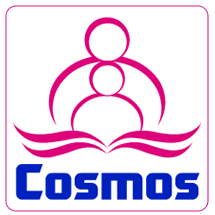Relationship between Social and Academic Adjustment: A Study of Female University Students in Azad Jammu and Kashmir
DOI:
https://doi.org/10.5281/ijete.v2i1.40Keywords:
Social Adjustment, Social Skills, Social Support, Self Confidence, Academic Adjustment, Prior Academic Preparation, Teacher Student RelationshipAbstract
The study was conducted to determine the relationship between social and academic adjustment of university-level female students AJ&K. The study was quantitative and descriptive in nature and survey method was employed together data from the respondents. The population of the study consisted of BS level students from University of Kotli AJ&K. The researcher selected 160 students as the sample using simple random sampling technique. The researcher personally visited university of Kotli and collected the data. In order to analyze the data, the researcher used frequency, percentage, mean, and standard deviation. It was concluded that respondents feel nervous in front of teachers also they are good in academic work and they stated that academic work difficult in university. It is recommended that administration may encourage open communication between students and teachers to create a supportive environment.
Downloads
References
Agbaria, Q. (2020). Predictors of personal and social adjustment among Israeli-Palestinian teenagers. Child Indicators Research, 13(3), 917-933.
Alsaqqa, H. H. (2022). Building the culture of public health as a positive reflection from the COVID-19 crisis. Risk Management and Healthcare Policy, 1683-1693.
Bedi, A. (2021). No herd for black sheep: A meta‐analytic review of the predictors and outcomes of workplace ostracism. Applied Psychology, 70(2), 861-904.
Blake, M., & Gallimore, V. (2021). Understanding academics: a UX ethnographic research project at the University of York. In Positioning the Academic Library within the University (pp. 155-167). Routledge.
Cogan, A., Pret, T., & Cardon, M. S. (2022). Everyday social support processes: Household members’ instrumental and emotional support of entrepreneurs. International Small Business Journal, 40(5), 537-563.
Cota, M. (2024). Relational & Collaborative: Librarian Leadership. The Journal of Academic Librarianship, 50(2), 102848.
Credé, M., & Niehorster, S. (2012). Adjustment to college as measured by the student adaptation to college questionnaire: A quantitative review of its structure and relationships with correlates and consequences. Educational Psychology Review, 24, 133-165.
Decety, J. (2020). Empathy in medicine: what it is, and how much we really need it. The American journal of medicine, 133(5), 561-566.
Domitrovich, C. E., Durlak, J. A., Staley, K. C., & Weissberg, R. P. (2017). Social‐emotional competence: An essential factor for promoting positive adjustment and reducing risk in school children. Child development, 88(2), 408-416.
Feeney, D. M. (2022). Positive self-talk: an emerging learning strategy for students with learning disabilities. Intervention in School and Clinic, 57(3), 189-193.
Garraway, J. (2021). Academics’ learning in times of change: a change laboratory approach. Studies in Continuing Education, 43(2), 223-243.
Gray, R., Vitak, J., Easton, E. W., & Ellison, N. B. (2013). Examining social adjustment to college in the age of social media: Factors influencing successful transitions and persistence. Computers & Education, 67, 193-207.
Hazan Liran, B., & Miller, P. (2019). The role of psychological capital in academic adjustment among university students. Journal of Happiness studies, 20, 51-65
Hu, S., Liu, H., Zhang, S., & Wang, G. (2020). Proactive personality and cross-cultural adjustment: Roles of social media usage and cultural intelligence. International Journal of Intercultural Relations, 74, 42-57.
Huang, L. (2020). Peer victimization, teacher unfairness, and adolescent life satisfaction: The mediating roles of sense of belonging to school and schoolwork-related anxiety. School Mental Health, 12(3), 556.
Hudig, J., Scheepers, A. W., Schippers, M. C., & Smeets, G. (2023). Motivational mindsets, mindset churn and academic performance: The role of a goal-setting intervention and purpose in life. Current Psychology, 42(27), 23349-23368.
Jones, S. M., & Bouffard, S. M. (2012). Social and Emotional Learning in Schools: From Programs to Strategies. Social Policy Report. Volume 26, Number 4. Society for Research in Child Development.
Juvonen, J., Espinoza, G., & Knifsend, C. (2012). The role of peer relationships in student academic and extracurricular engagement. Handbook of research on student engagement, 387-401.
Li, S., & Zizzi, S. (2018). A Case Study of International Students' Social Adjustment, Friendship Development, and Physical Activity. Journal of International Students, 8(1), 389-408.
Liu, J., Peng, P., & Luo, L. (2020). The relation between family socioeconomic status and academic achievement in China: A meta-analysis. Educational Psychology Review, 32, 49-76.
Maloney, D., Freeman, G., & Wohn, D. Y. (2020). " Talking without a Voice" Understanding Non-verbal Communication in Social Virtual Reality. Proceedings of the ACM on Human-Computer Interaction, 4(CSCW2), 1-25.
Maynard, C., Garcia, J., Lucietto, A., Hutzel, W., & Newell, B. (2021). Experiential Learning in the Energy Based Classroom. International Journal of Engineering Pedagogy, 11(6)
Maynard, C., Garcia, J., Lucietto, A., Hutzel, W., & Newell, B. (2021). Experiential Learning in the Energy Based Classroom. International Journal of Engineering Pedagogy, 11(6).
Men, L. R., Yue, C. A., & Liu, Y. (2020). “Vision, passion, and care:” The impact of charismatic executive leadership communication on employee trust and support for organizational change. Public Relations Review, 46(3), 101927.
Monroe, M. C., Plate, R. R., Oxarart, A., Bowers, A., & Chaves, W. A. (2019). Identifying effective climate change education strategies: A systematic review of the research. Environmental Education Research, 25(6), 791-812.
Naeem, M. (2020). Understanding the role of social media in organizational change implementation. Management Research Review, 43(9), 1097-1116.
Nurdin, M. (2022). Regulation of the Education Rights of Persons with Disabilities in Law Number 8 of 2016 concerning Persons with Disabilities. Legal Brief, 11(2), 861-872.
Patel, S. A., & Jansari, A. (2019). Social adjustment of student’s in context with gender and habitat. International Journal of Indian Psychȯlogy, 7(4).
Rahmatullah, A. S., Mulyasa, E., Syahrani, S., Pongpalilu, F., & Putri, R. E. (2022). Digital era 4.0: The contribution to education and student psychology. Linguistics and Culture Review, 6(S3), 89-107.
Raju, M. V. R., & Rahamtulla, T. K. (2007). Adjustment problems among school students. Journal of the Indian academy of applied psychology, 33(1), 73-79.
Rienties, B., Beausaert, S., Grohnert, T., Niemantsverdriet, S., & Kommers, P. (2012). Understanding academic performance of international students: The role of ethnicity, academic and social integration. Higher education, 63, 685-700.
Roksa, J., & Kinsley, P. (2019). The role of family support in facilitating academic success of low-income students. Research in Higher Education, 60, 415-436.
Sadiki, H. (2020). Non-verbal Barriers to Cross-cultural Communication. Journal of Research in Engineering, IT and Social Sciences, 10(12), 25-34.
Scanlan, J. N., Still, M., Radican, J., Henkel, D., Heffernan, T., Farrugia, P. & English, J. (2020). Workplace experiences of mental health consumer peer workers in New South Wales, Australia: A survey study exploring job satisfaction, burnout and turnover intention. BMC psychiatry, 20(1), 1-15.
Schunk, D. H., & DiBenedetto, M. K. (2021). Self-efficacy and human motivation. In Advances in motivation science (Vol. 8, pp. 153-179). Elsevier.
Shin, H., & Ryan, A. M. (2014). Early adolescent friendships and academic adjustment: examining selection and influence processes with longitudinal social network analysis. Developmental psychology, 50(11), 2462.
Simon, J. A. (2011). Legal issues in serving students with disabilities in postsecondary education. New Directions for Student Services, 2011(134), 95-107.
Syakur, A., Zainuddin, H. M., & Hasan, M. A. (2020). Needs analysis English for specific purposes (esp) for vocational pharmacy students. Budapest International Research and Critics in Linguistics and Education (BirLE) Journal, 3(2), 724-733.
Udvari-Solner, A., & Thousand) J. (2018. Effective organizational instructional and curricular practices in inclusive schools and classrooms. In Towards inclusive schools? (pp. 147-163). Routledge.
Valente, S., Lourenço, A. A., & Németh, Z. (2020). School conflicts: Causes and management strategies in classroom relationships. Interpersonal Relationships. IntechOpen Limited.
Vansteenkiste, M., Ryan, R. M., & Soenens, B. (2020). Basic psychological need theory: Advancements, critical themes, and future directions. Motivation and emotion, 44, 1-31.
Voevoda, E. V. (2020). Intercultural communication in multicultural education space. Training, Language and Culture, 4(2), 11-20.
Wang, M. T., & Sheikh‐Khalil, S. (2014). Does parental involvement matter for student achievement and mental health in high school? Child development, 85(2), 610-625.
Wiek, A., Withycombe, L., & Redman, C. L. (2011). Key competencies in sustainability: a reference framework for academic program development. Sustainability science, 6, 203-218.
Wyatt, L. G. (2011). Nontraditional student engagement: Increasing adult student success and retention. The Journal of Continuing Higher Education, 59(1), 10-20.
Yunus, M. M., Osman, W. S. W., & Ishak, N. M. (2011). Teacher-student relationship factor affecting motivation and academic achievement in ESL classroom. Procedia-Social and Behavioral Sciences, 15, 2637-2641.
Yurizka, Q., Simanjuntak, M. B., & Sihombing, J. (2022, May). SELF-ACCEPTANCE STUDY IN THE KOREAN DRAMA SERIES OUR BELOVED SUMMER (INTRINSIC ANALYSIS OF THE MAIN CHARACTER’ S CHARACTER). In Prosiding Seminar Nasional Inovasi Pendidikan.
El Ansari, W., Stock, C., & Mills, C. (2020). Is alcohol consumption associated with poor academic achievement in university students? International Journal of Preventive Medicine, 11, 22.
Rogers, B., Sturges, D., & Miller, M. (2021). Addressing the mental health needs of college students. Journal of College Student Psychotherapy, 35(3), 176-191.
Holt-Lunstad, J., Robles, T. F., & Sbarra, D. A. (2017). Advancing social connection as a public health priority in the United States. American Psychologist, 72(6), 517–530.
Muzaffar, N., Hamid, S., & Anjum, A. (2021). Impact of social integration on academic stress among university students. Pakistan Journal of Psychological Research, 36(1), 1-18.
Ibrahim, N. K., & Alkire, R. W. (2020). The Influence of Social and Academic Integration on Student Retention in Higher Education. Education Sciences, 10(9), 221.
Soria, K. M., & Stebleton, M. J. (2012). First-generation students' academic engagement and retention. Teaching in Higher Education, 17(6), 673-685.
Downloads
Published
How to Cite
Issue
Section
License
This is an Open Access article distributed under the term of the Creative Commons Attribution 4.0 International licenses permitting all use, distribution and reproduction in any medium provided the work is properly cited.

























